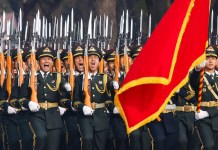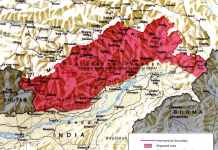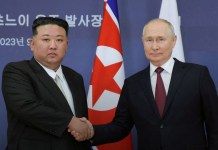Myanmar and Russia keep working to implement defense contracts, Myanmar’s military government spokesman Gen. Zaw Min Tun told Sputnik.
“Cooperation between our countries is very important, and we appreciate this cooperation. It is not only in the form of procurement of weapons; efforts to create an army in line with modern standards will continue. Work is underway in accordance with the existing contracts. It is going as agreed in the contract,” the general said.
Cold War Redux – Why Russia Is Winning The COVID-19 War With Sputnik V Vaccines?
The latest deals were struck in January. “In January, we had the Russian Defense Ministry’s delegation led by the defense minister himself, General of the Army [Sergei] Shoigu, and agreements and contracts were signed. No new ones have so far been struck,” the spokesman specified.
Earlier in the week, the Russian Foreign Ministry told Sputnik that it condemns violence in Myanmar during protests against the military rule.
According to Moscow, the diplomatic potential for settling the conflict in Myanmar has not been fully exhausted. The ministry also slammed the West’s claims against Russia’s defense cooperation with Myanmar as a propaganda stunt, noting that there are no international curbs on arms deliveries to the Southeast Asian country.
Earlier, as EurAsian Times reported, Russia has been arming Myanmar with Pantsir S-1 air defense systems amid all the commotion in the country.
Earlier this year, Russia and Myanmar had signed an agreement for the supply of a batch of missile and artillery air defense systems Pantsir-S1, unmanned aerial vehicles Orlan-10E and radars.
Russia, China, and India were among the eight nations which attended the Military Day parade in Myanmar capital Naypyidaw on March 28. The same day, the Myanmar military was accused of killing over 100 civilians across the country.
Myanmar Protests
There are no peaceful protests in Myanmar; all protesters are armed and “look like terrorists,” military government spokesman Gen. Zaw Min Tun told Sputnik.
According to the spokesman, the protests could be divided into three stages.
“The first one lasted until February 14. There were really peaceful protesters who wanted democracy there. There’s nothing strange about that, that happens in all countries. And our law enforcement agencies were working as usual, without any additional effort, and that’s a fact,” the spokesman said.
The second stage began in mid-February, when “peaceful protesters began destroying the mechanisms of the state, created a movement of civil disobedience while forming a shadow government,” the general said. According to Zaw Min Tun, protesters were interfering with the work of civil servants and regular people, but the law enforcement agencies were being patient and using only water cannons or firing up in the air as a warning.
In late February, protesters began staging “blunt assaults on local law enforcement services; there are no peaceful protesters in the streets, everyone is armed,” the general said.
“If someone has something again them, be that even a regular civilian who just disagrees with what’s going on, they may be killed. Special killers are hired for that. Back then, at the end of February, our law enforcement had to use firearms and fire at the crowd, which also has the same arms. Media, which have Western countries behind them, Western media, were filming that. And the global community saw that. And they were saying with certainty that UN peacekeepers would soon enter our country,” the general said.
According to Zaw Min Tun, protesters then began attacking cities. Both members of the former ruling party and “hooligans and mercenaries” who “call themselves peaceful civilians while burning down factories, killing police officers, meddling with the work of the authorities.” In late March, protesters began attacking the police; and they were targeting not only the officers in the streets but attacking police stations and government buildings, too, the general said.
“Since early April, they have been using explosives, bombs, grenades to attack government buildings, schools, transport, factories and factory facilities, civilians who are against them. We understand it and we act according to the law.
So if a UN representative calls them peaceful protesters, that was only true for the first stage of the protests. And now, all those who take to the streets look like terrorists. They have arms, explosives; they believe that ‘if you’re not with us, then you’re the enemy.’ They kill civil servants and those who are just peacefully working,” the general said.




